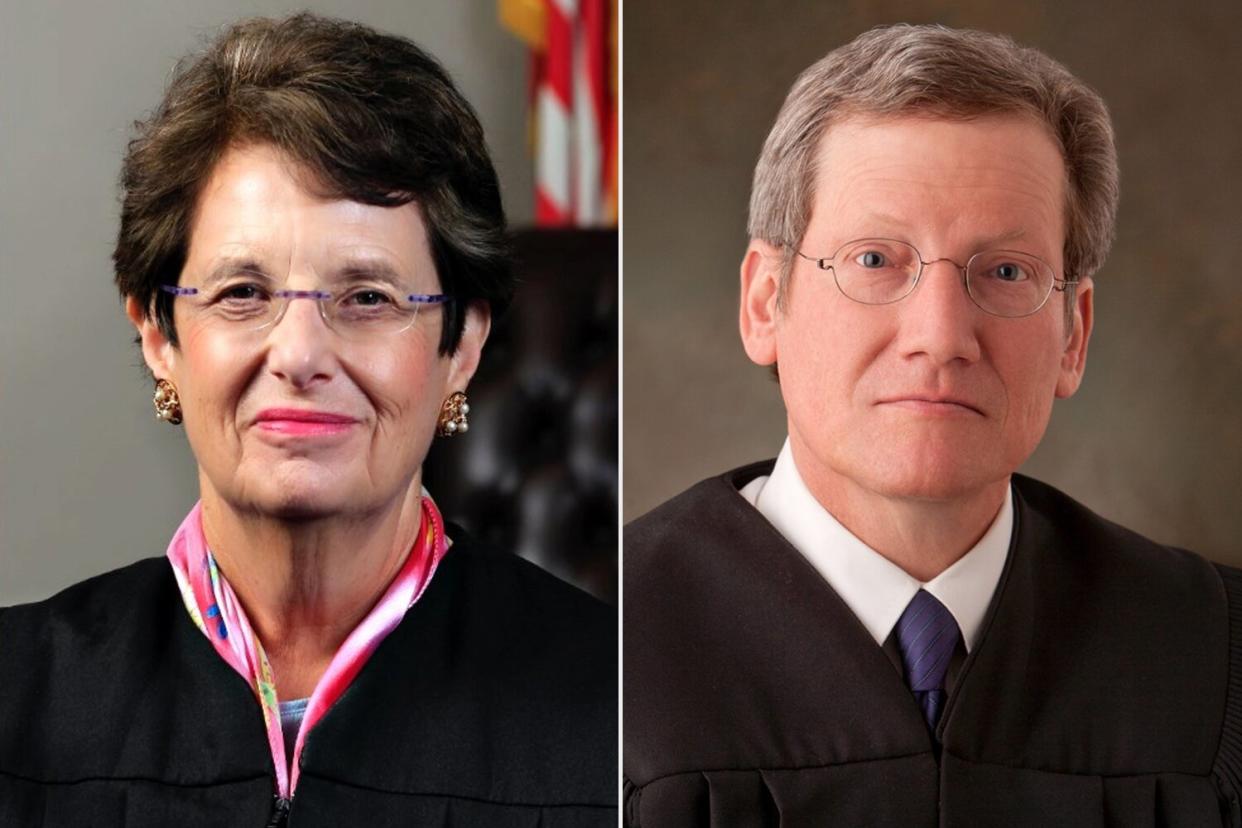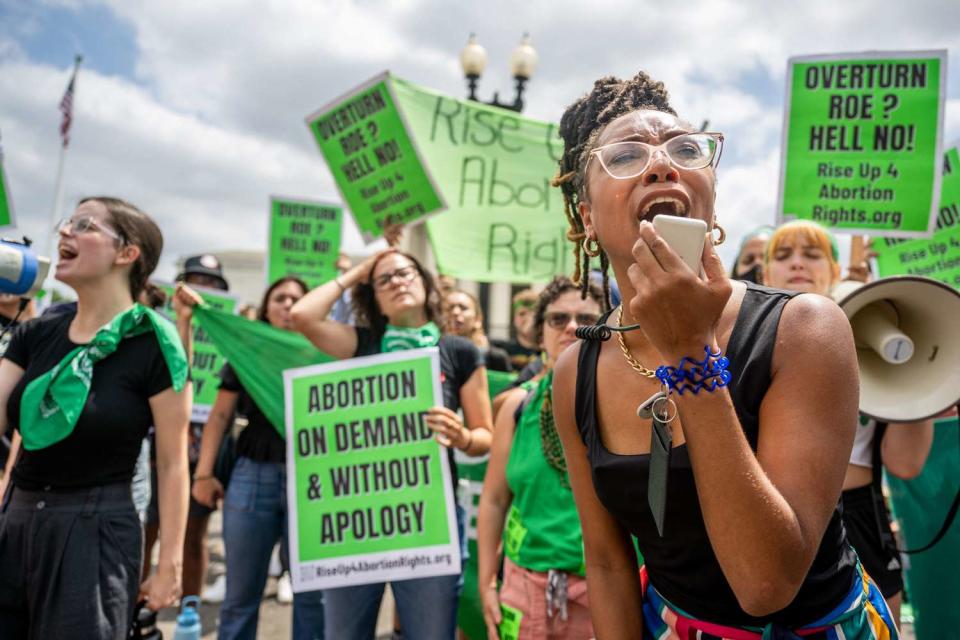Judges in Louisiana and Utah Temporarily Block Trigger Laws Banning Abortions

Facebook/Judge Robin Giarrusso ; Utah Judicial Performance Evaluation Commission
Judges in Louisiana and Utah have temporarily blocked their states' trigger laws banning abortion following the U.S. Supreme Court's decision to overturn Roe v. Wade last week, according to multiple reports.
The 6-to-3 ruling reverses nearly 50 years of legal precedent and will completely change the landscape of women's reproductive rights by giving individual states the power to decide whether to allow the procedure. It is estimated that nearly half the country will enact near-total bans in the coming months.
Since the decision, states such as Arkansas, Kentucky, Missouri and South Dakota have already banned abortion after putting "trigger bans" in place that governors enacted after the Supreme Court ruling.
Louisiana, which was also expected to be part of this group, is exempt for now, with Orleans Parish Civil District Court Judge Robin Giarrusso having granted a temporary restraining order to block the ban on Monday. A spokesperson for the Orleans Parish Civil District Court confirmed the news to PEOPLE Tuesday, and said that Giarrusso had no comment.
The request was made by plaintiffs Hope Medical Group for Women and Medical Students for Choice, multiple outlets report. A hearing for next steps has been scheduled for July 8, according to local New Orleans publication the Gambit.
Never miss a story — sign up for PEOPLE's free daily newsletter to stay up-to-date on the best of what PEOPLE has to offer, from juicy celebrity news to compelling human-interest stories.

Brandon Bell/Getty Abortion rights protest
RELATED: See Which States Will Fully Ban Abortion Within One Month
In Utah's case, the state's Third District Judge Andrew Stone granted Planned Parenthood Association of Utah's request for a 14-day temporary restraining order to block the ban on Monday.
"I think the immediate effects that will occur outweigh any policy interests of the state in stopping abortions immediately," Stone said following the decision, according to The Salt Lake Tribune. "Doctors here are threatened with felonies. The affected women are deprived of safe, local medical treatments to terminate pregnancies."
"There is irreparable harm," he also reportedly said.
Stone's chambers did not immediately respond to PEOPLE's request for comment.
Following the Supreme Court's ruling, protests have since erupted around the country and President Joe Biden has spoken out against the decision, which he called the "realization of an extreme ideology and a tragic error by the Supreme Court."
RELATED VIDEO: Vice President Kamala Harris Comments on SCOTUS Roe v. Wade Decision
During a conversation with Meet the Press' Chuck Todd that aired Sunday, Arkansas Gov. Asa Hutchinson spoke on his state's Act 180, which was triggered as a result of the overturning.
As a result of the law, which Hutchinson, 71, previously signed, abortion providers could now be fined up to $100,000 and/or face 10 years in prison. There are no exceptions for rape or incest, even in the case of a minor, with the only exception being if the life of the parent giving birth is in danger.
The governor was asked by Todd, 50, "If a 13-year-old in Arkansas is raped by a relative, that 13-year-old cannot get an abortion in Arkansas. Are you comfortable with that?"
"I would prefer a different outcome than that, but that's not the debate today in Arkansas," Hutchinson replied. "It might be in the future, but for now, the law triggered with only one exception ... as you [Todd] said, in the case of the life of the mother," he said.

 Yahoo Movies
Yahoo Movies 
